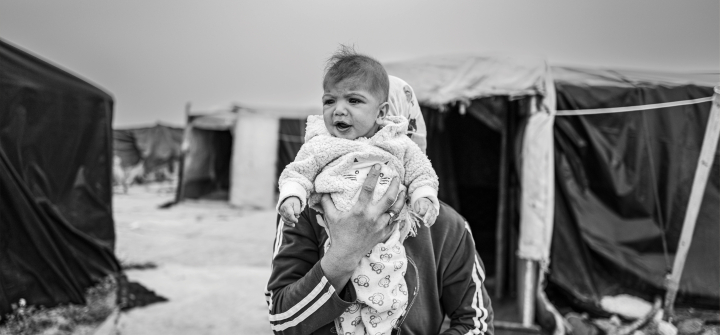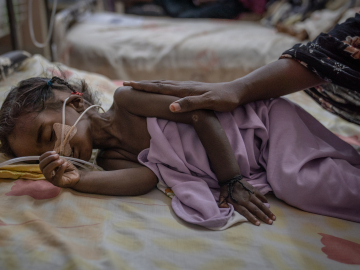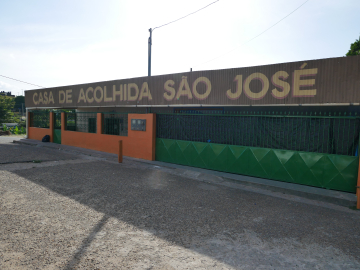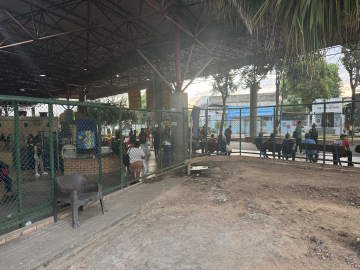It’s Time to Fix a Failing Humanitarian Aid System
Our humanitarian systems are underfunded, overstretched, and overwhelmed.
Consider today’s challenge: More than 100 million people are currently displaced, and more than 274 million people need humanitarian assistance or protection.
But humanitarian organizations (and governments) are not adapting to the changing needs of displaced peoples. Compared to the 1990s, the duration of conflict, the number of those displaced, and the average duration of displacement for refugees have all doubled. (Refugees can now expect to live 20 years in a host country.)
The annual cost of running the humanitarian system now exceeds $35 billion compared to $2 billion 3 decades ago. That’s an important reason why there’s been a 40% funding shortfall each year for the past 5 years.
Worse still: The responses that are funded are failing those displaced because they offer short-term, Band-Aid solutions that inherently disempower beneficiaries.
Let me tell you what this looks like on the ground: A few years ago, I witnessed 15 members of an NGO distributing Bibles and proselytizing Christianity to a group of Muslim refugees who had just arrived in Greece and were en route to Germany. The assumption was that refugees would be willing to convert to Christianity to increase the probability of securing permanent resettlement in Europe.
I knew a refugee family in a camp near Thessaloniki who would walk for an hour to the nearest computer center every day so they could call about their resettlement claim. They would try calling all day to no avail and then walk the hour back to the camp at night. After calling daily for 3 months, they were eventually approved for resettlement. But 50,000 refugees are still stranded in Greece today awaiting their family reunification decisions. Most will be denied.
Another example: More than 75% of Syrian child and adolescent refugees in Jordan and Lebanon drop out of school before reaching the secondary level. They don’t see the value of the education given limited professional opportunities that would be available to them. They also feel the need to financially support their families.
In short, those displaced by conflict or climate are forced to flee their homes to areas that mostly do not receive them well. (At least, in the long-term.)
Why is this happening? First, our humanitarian response assumes we know what displaced populations want and need over decades without their input.
Second, the provision of this aid is inconsistent. In acute emergencies, numerous NGOs rush in to provide aid. But years later, they realize they can no longer sustain their operations and leave. For example, refugee families dependent on UN agencies like the WFP for food support endure abrupt suspensions or reductions of their monthly food assistance. Last year, WFP raised a record $9.6 billion in 2021 but remains $5.2 billion short of what it needs.
Third, the provision of aid assumes that beneficiaries have no desire to support themselves or leverage the technical skills they already have. Those assumptions are incorrect. People living in refugee camps are no different than you or me. They want to live with dignity, secure a future for their children, and have opportunities for true self-sufficiency.
Meeting these aspirations requires commitment and creativity. On World Refugee Day this year, I launched a company—Rise with Refugees—that financially empowers women refugees. We pay artisans—initially Syrian refugee women living in informal tented settlements across Jordan—6X the local minimum wage to make products. That’s $18/hour. These products are, in turn, sold in the US with a percentage of profits going to support more empowerment programming for refugees globally. While I don’t claim that Rise products are the panacea to the global displacement crisis, they are a step in the right direction.
It’s past time for humanitarian organizations and government agencies to adapt to the realities of protracted conflict and decades-long displacement. They must ensure that they don’t create a population dependent on aid that doesn’t even meet their needs. They must engage more with beneficiaries to learn what they want and need. And they must create opportunities for true empowerment and employment.
Anything short of that is simply wrong.
Laila Soudi, MS, is the co-founder of the MENA Health Program at Stanford Medicine and founder of Rise with Refugees.
Editor’s note: The views expressed here are the author’s alone and are not necessarily shared by her institution.
Join the 50,000+ subscribers in over 170 countries who rely on Global Health NOW for the latest global health news. Sign up for our free weekday newsletter, and please share the link with friends and colleagues.
Informal Syrian tented settlement in Jordan. April 2022. Dalia Naber.




